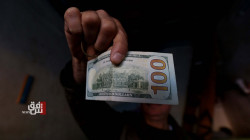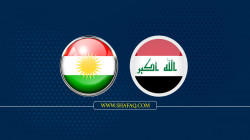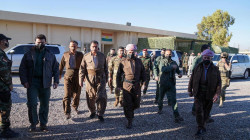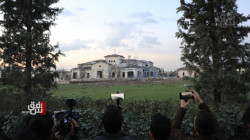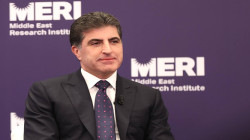2021: a momentous year for Iraq and Kurdistan's diplomacy
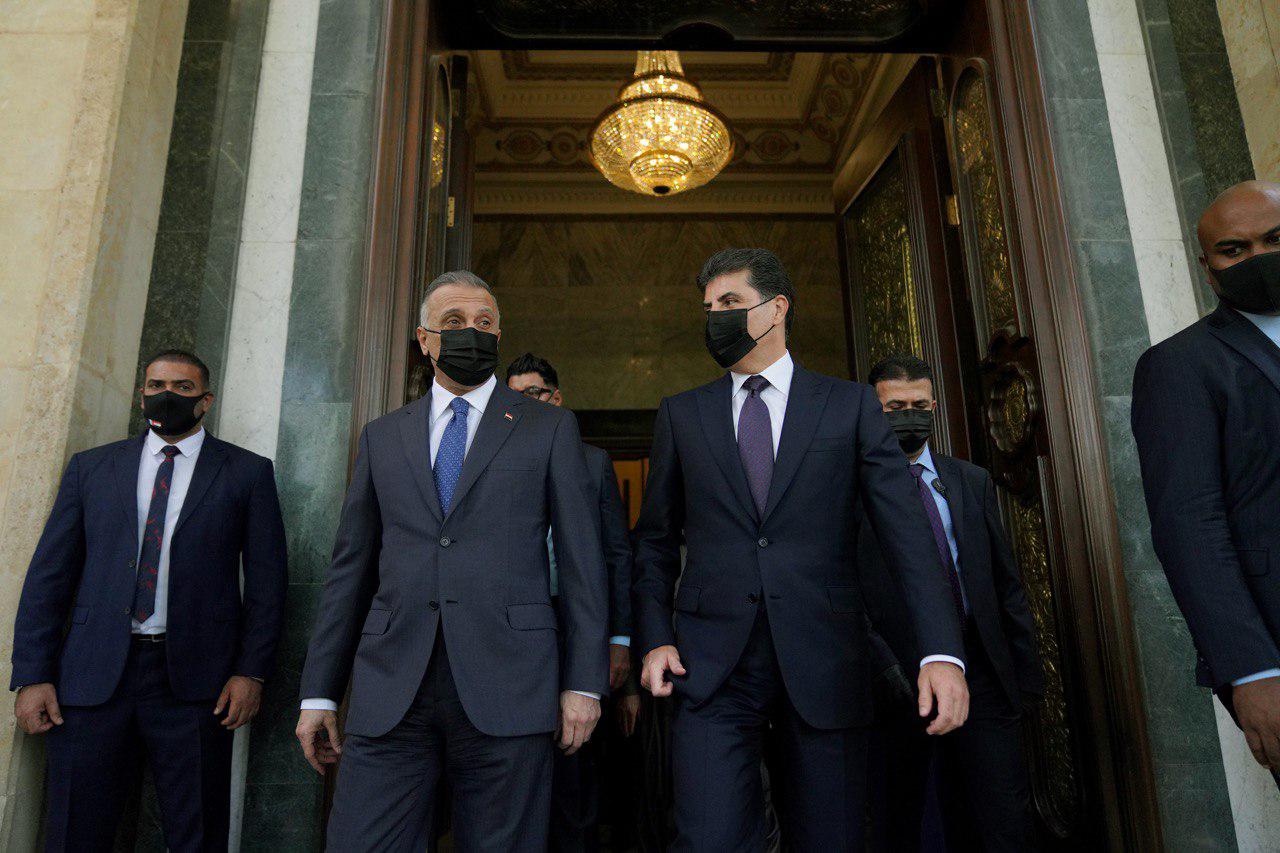
Shafaq News/ With many defining events crammed in 12 months, 2021 was indeed a transformative year for Iraq's diplomacy and polity. While seeking solutions for the long-standing differences with Erbil, Baghdad was pulling strings at the international level bringing rival states to the table together on multiple occasions, reviving dormant alliances, and fostering Trans-religious and national dialogues.
The visit of Kurdistan's President, Nechirvan Barzani, to the Iraqi capital on April 11 was a hallmark in the diplomacy between the federal and regional governments. President Barzani headed to the Iraqi capital with the aim to end the outstanding disputes and ease the tension that strained the ties between Baghdad and Erbil.
In April, the news that Iraq was mediating between longtime rivals Saudi Arabia and Iran captivated Middle East watchers. Iraq's new role as a Saudi-Iran intermediary comes as the Saudis have taken concrete steps in recent years to build a meaningful relationship with their northern neighbor, such as reopening their border last November for the first time since 1990.
Yet while the new Saudi-Iraq relationship is indeed noteworthy, Iraq was simultaneously forging a regional partnership with two other Arab states: Egypt and Jordan. Indeed, Baghdad hosted a summit in late June attended by Egyptian President Abdel-Fattah el-Sissi and King Abdullah II of Jordan. It was the fourth time leaders of the three countries have met together since March 2019, and the first time on Iraqi soil. It was also the first visit by an Egyptian president to Iraq in more than 30 years.
The Baghdad Conference for Cooperation and Partnership, held August 28 in the Iraqi capital, provided further uphold for Iraq in terms of political, economic, and security developments. The conference was attended by French President Emmanuel Macron, Jordanian King Abdullah, Egyptian President Abdel Fattah al-Sisi, Qatari Emir Tamim bin Hamad Al Thani, Emirati Vice President and Prime Minister Mohammed bin Rashid, and Kuwaiti Prime Minister Sabah Al-Khalid Al-Sabah. Turkey, Saudi Arabia, and Iran were represented by their foreign ministers. The Summit definitely established Iraq's reputation as a mediator between rival parties and an active diplomatic conductor in an extremely polarized region.
With a depleted force of Healthcare professionals, Iraq and Kurdistan had to cope with ebbing and flowing COVID-19 caseloads without reaching herd immunity despite the impetus mobilized to push forward vaccination rollouts. In similar settings, both the federal and regional governments had to confront the growing jeopardy of ISIS, particularly in the contested territories between both sides. The alarms raised due to this situation have forced Erbil and Baghdad to join efforts to curb the threat of the terrorist group; an initiative many observers believe it might ruffle the feathers and lay the foundations of active and fruitful cooperation.
On March 5, Pope Francis, leader of the Catholic Church, embarked on a historic four-day trip to Iraq, where he met with officials, religious leaders and ordinary Iraqis of all faiths.
Remarkably, he went to Najaf where he visited Grand Ayatollah al-Sistani, the spiritual leader of Iraq's Shiite community. The meeting was a significant milestone in Iraqi history and the global history of interfaith dialogue.
The pontiff visited the ancient city of Ur in Dhi Qar governorate and Mosul, where he prayed at the ruins of four churches destroyed by ISIS. The Pope's emblematic visit to Iraq featured a transnational aspect when he landed in Erbil, where he met President Nechirvan Barzani and the historic leader of the Kurds, Masoud Barzani.
The Pope's visit to Iraq offered moral support to the beleaguered and dwindling Christian community and will hopefully encourage the Iraqi leadership to put more effort into protecting the many minorities the country is home to. While much can be done to ensure the safety of minority communities, it has to be recognized that their plight has much to do with instability linked to Iraq's century-long state formation process and persistent foreign interference.
The fluctuations that dictated the ties between Baghdad and Erbil have remained under scrutiny throughout the outgoing year. The approach of the Kurdistan Regional Government (KRG) was crystal clear, however.
"The administration’s priority is to develop a constructive and stable partnership with Baghdad built on a foundation of mutual respect and meaningful cooperation. This includes a clear understanding of both parties’ rights and duties," KRG's official website reads, "We share a set of mutual interests with Baghdad covering trade, the security of our borders and the economic prosperity of our citizens. Those interests can only be realized through partnership, not ongoing contestation. There are long-term issues that need to be addressed and this government is committed to exploring new avenues of dialogue. The aim must be to leave behind past disputes in favor of developing new approaches to shared challenges."
"The constitution will be the fundamental basis of negotiations with Baghdad," it asserted.
After months of wrangling, Iraq's parliament approved on Mars 31 the 2021 budget of 130 trillion Iraqi dinars ($89.65 billion) as the country wrestles with an economic and financial crisis due to low crude prices. The 2021 budget set an oil price of $45 a barrel and expected oil exports of 3.25 million barrels per day (bpd), including 250,000 bpd from the Kurdistan region. The budget deficit is estimated at 28.7 trillion Iraqi dinars ($19.79 billion).
The visit of President Nechirvan Barzani to Baghdad less than two weeks later, and his meeting with the three heads of the state and senior government and partisan officials, came to cement the entitlements of the Region, normalize the situation in Sinjar, and lay down a national strategy to confront the COVID-19 pandemic.
Baghdad's visit was preceded by a brief trip to the French capital, Paris, during which the President of the Kurdistan Region met with the French President, Emmanuel Macron. The meeting was one of many in the history of the relation between the two Presidents.
Baghdad and Erbil started a new chapter afterward. On June 16, the Iraqi government sent the first monthly payment that covers the salaries of the Region's public servants per the 2021 budget bill. On August 8, a meeting between the Iraqi Minister of Oil, Ihsan Abdul-Jabbar Ismail, and Kurdistan's Minister of Natural Resources, Kamal Atrusi, ended up with an agreement that settled the disputes over the oil and gas resources and paved the way for fruitful cooperation between the federal and regional governments.
On June 27th, Baghdad hosted a trilateral summit with President al-Sisi and Jordan's King Abdullah, to discuss ways for the three countries to cooperate, coordinate, and integrate strategically, in the context of what al-Kadhimi himself had revealed months ago to a U.S. newspaper that he would seek to launch what he called the "New Sham" project, which brings together Baghdad, Cairo, and Amman, allowing for greater free capital and technology flows among the three countries.
Following the summit, al-Kadhimi stated that his discussions with al-Sisi and King Abdullah were focused on investment and economic cooperation, "We agreed on a common vision, and we succeeded in achieving specific ones. Now, we are in the process of implementing these projects, in the areas of electrical connectivity, agriculture, and transportation, as well as the issue of food security raised by King Abdullah at the previous summit."
Two months later, the Baghdad International Regional Conference, sponsored by al-Kadhimi and Macron, was held and attended by leaders and representatives from Saudi Arabia, Iran, the United Arab Emirates, Egypt, Kuwait, Turkey, Jordan, and Qatar, which Baghdad had not seen similar to in decades. The conference laid emphasis on joining regional and international efforts to ensure Middle East stability, the principles of good neighborliness, non-interference in internal affairs of countries, and respect for national sovereignty.
The conference was an opportunity to highlight Iraq's position on the international stage as an active player capable of bringing key countries together, bringing views together, and establishing alternatives to regional engagement through coordination and economic cooperation.
Although neither Saudi King Salman nor Iran's new president, Ebrahim Raisi, attended it, the conference was held against the backdrop of secret talks between Saudis and Iranians sponsored by al-Kadhimi to bring the two sides closer together, which are believed to have begun in April.
On September 12th, al-Kadhimi traveled to Tehran and was the first prominent foreign leader to visit the Iranian capital to congratulate the new president, Ebrahim Raisi, while Baghdad continued its covert mediation between Tehran and Riyadh.
Mustafa al-Kadhimi's meetings with Iranian officials were dominated by discussions regarding the economic issues that overlap and are growing significantly between the two countries. The visit also occurred only three weeks before Iraq's elections.
"Contrary to the wishes of the enemies, relations between Iran and Iraq will grow in all fields," Ebrahim Raisi stated at a joint press conference in Tehran with al-Kadhimi.
However, Iraq's foreign concern, and the gains it may have made, as a result, have not obscured the fact that Iraq and the Kurdistan Region face a serious challenge: the threat posed by terrorism and ISIS, as expressed by Masoud Barzani on December 6th, when he summed the situation up, saying that defeating ISIS requires coordination and military cooperation at the highest levels between the Region and the federal government, in the aftermath of a series of terrorist attacks in "disputed" areas or through security gaps, which have resulted in more than 20 deaths in a matter of days.
Two days before Barzani's statement, a military delegation from the Peshmerga Ministry visited Baghdad and met with the deputy commander of joint operations, Lt. Gen. Abdul Amir al-Shammari, to prevent ISIS attacks and secure areas shared by the two governments.
According to the supreme military coordination committee, the two sides agreed on August 12th to form joint security forces in the disputed areas, after another meeting with a federal delegation headed by Lt. Gen. Abdul Amir al-Shammari, and according to what Secretary-General of the Peshmerga Ministry, Lt. Gen. Jabbar Yawar announced, six coordination centers were formed, including army and Peshmerga officers, two major ones in Baghdad Erbil, and four in the cities of Diyala- Khanaqin, Kirkuk, Makhmour, and Nineveh-al-Kesk.
The October 10th elections, however, marked an important turning point in Iraq and Kurdistan, as it was the fifth since the regime's fall in 2003, and resulted in a limited but notable change in the composition of the political class, which is still engaged in behind-the-scenes negotiations to arrange the new political and parliamentary landscape in the country, where it is hoped that a new government will be formed in 2022, pending the resolution of conflicts between the Iraqi and Kurdish forces.
Even though Sadrist leader Muqtada al-Sadr emerged as the strongest player in the polls, and the Kurdistan Democratic Party (K.D.P.) emerged as the largest player at the Kurdish level, alliances and options for forming a government are still being negotiated, and the election went through a period of tension due to suspicions of fraud and manipulation of its results.
Meanwhile, al-Kadhimi survived an assassination attempt, as his residence was targeted with booby-trapped drones on November 7th, less than a month after the elections.
